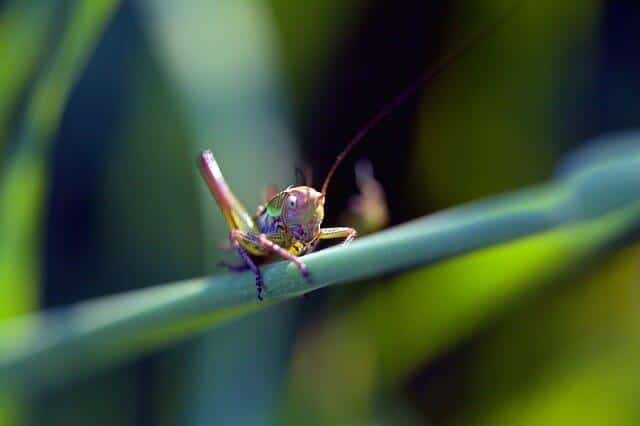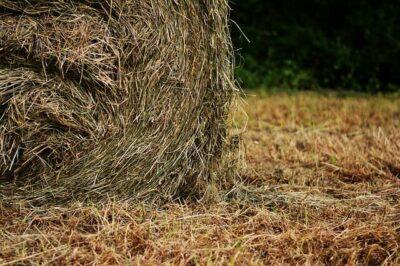Kale with huge holes in the leaves. Squash plants missing large sections of stem. Flowers with their petals missing.
Insect garden pests can do all these things and more to your precious plants, and by the time you notice, it may be too late. For many, the solution is to smother plants in chemicals, both for treatment or prevention, but this pest control method has major drawbacks.
First, it creates unnecessary work for the gardener. Pesticides aren’t selective about the insects they kill, which means they’ll kill predator insects and pollinators, too, ultimately creating a vicious cycle where the gardener must continually intervene to take over the functions that a normal healthy ecosystem would do automatically. Not only that, but there is increasing evidence that pesticides are poisonous to humans, and spraying poisons on your food is probably not a good idea.
Fortunately, there are many effective and safe all-natural ways you can control pests in the garden, most of which will save time and effort to boot:
1. Get to know your pest. Identity what your pests are, and research their lifecycles, habitat requirements and predators. Then, make a plan of attack, known as an integrated pest management strategy. Knowing your pest also may help you come up with creative solutions of your own, while knowing the right questions to ask people online or in person who may be able to help you.
This New All-Natural Fertilizer Doubles Garden Production! [2]
2. Encourage allies (predators) of pests. As mentioned, predator insects will take a hit from pesticides, and their life cycles are generally longer than those of pests, which means they’ll recover more slowly. Further, if you keep killing all the pests, they won’t have food to establish their populations and keep the pests in check naturally. Some examples of things you can do to encourage predator allies:
- Feed allies. Many predators, such as parasitic wasps, have food requirements besides the pests they may pray on. Parasitic wasps need nectar that they can only get from umbel flowers (e.g. dill, fennel, angelica, lovage). Plant a lot of different types of plants, especially flowers, to make more food for predators, but also habitat (see below).
- Create habitat. Do you have a slug problem? More than likely, you actually have a frog and ground bird deficiency (both of which can demolish slug populations). Frogs won’t come around much without a pond, so make one! Birds need trees and shrubs, ideally with berries and other food sources. Lacewings, another ally, need furry leaved plants to lay their eggs on. Add mulch, rocks, logs, and a diversity of plants to your garden to create more habitat for more creatures. Most insects and animals are not pests, so the more you have, the easier your garden ecosystem will stay in balance.
3. Try natural planting patterns. Instead of planting all your plants of a given species in one large clump, consider spacing them out into smaller clumps, in more random planting patterns. This will make it harder for pests to find their favorite foods, keeping them moving more, which will make them waste more energy and open them up to predation.
4. Attract insects to trap plants. Once you know your pest, do some research to find out what their favorite foods are so you can use those against them by planting a few of them to attract them away from other plants in the garden. Once you attract them to the trap plant, you can more easily combat them through limited organic sprays on just those few plants, or through picking them off into soapy water, or even vacuuming them off. Flea beetles, for example, love bok shoi and pak choi, and will usually flock to it over broccoli or other brassicas.
5. Keep healthy plants. Healthy plants are better at defending against pests. Once a plant has everything it needs, it will produce its own pesticides: compounds that are toxic, disrupt digestion, make plants taste bad, or deter pests through other means (e.g. disrupting smell). Tips for keeping plants healthy:
- Plant diversity. Besides the benefits of more plant diversity mentioned above, planting a larger diversity of plants that includes native perennials fulfills more of the ecological functions needed for a healthy ecosystem. This includes decreasing root competition and increasing nutrient cycle efficiency through using deeper rooted plants, and utilizing other plant functions such as nitrogen fixation (where plants create a macronutrient literally out of thin air).
- Mulch, mulch, mulch. Mulch has innumerable benefits, and should be at least 4-6 inches thick. It slows evaporation, provides slow release fertilizer, protects the soil and the microorganisms from the beating sun and erosive wind and rain, while providing habitat for allies like ground beetles and spiders.
- Boost microorganisms. Use aerated compost teas or effective microorganism sprays to boost microorganisms in the soil, along with mycorrhizal inoculants. Microorganisms, including bacteria, yeast, protozoa and mycorrhizae, help to break down nutrients to be more bioavailable, or usable, to plants. They also help to build healthy soil structure that prevent erosion and nutrient leaching.
- Boost soil organic matter. Although mulch and inoculants will both help build organic matter, there are other methods you can use as well to feed your microorganisms and build your soil. These include planting “chop and drop” mulch crops (e.g. alder trees, comfrey), and green manures (e.g. fall rye, buckwheat). Mulch crops can be cut regularly, with their debris being left on the soil to decompose, while green manures are cut before they go to seed, and disked or lightly surface tilled into the soil (being careful not to mix soil layers, and limiting the number of times this is done so as not to set back soil structure formation).
The above tips for all-natural pest control are all related to creating a healthy ecosystem for your plants to thrive in. Learning about ecology, and treating your garden like the ecosystem it is, will help you to better respond to pests and other issues in the garden, creating less work, and wasting less resources, while growing the most nutritious and clean food you can get.
If you have any other favorite ways you control pests in the garden that are missing from this list, please share in the comments below!

